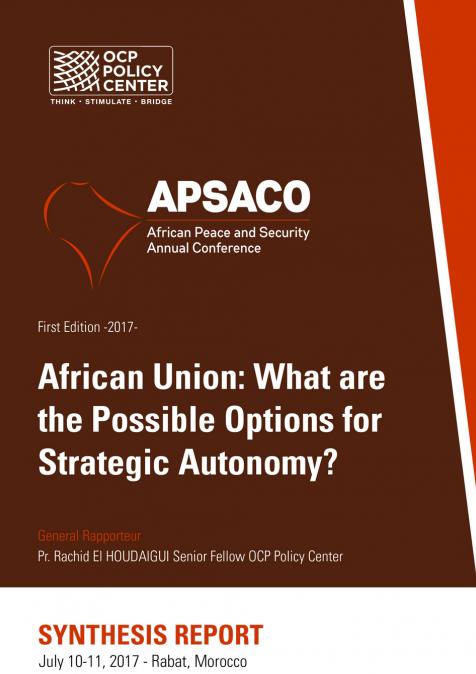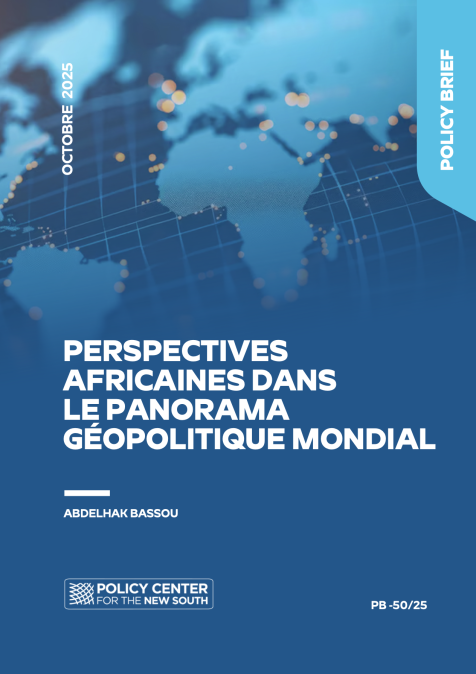Publications /
Book / Report
The African Peace and Security Annual Conference (APSACO), organized by the OCP Policy Center, was held from July 10 – 11, 2017 in Rabat. This first edition, focusing on the African Union’s (AU) strategic autonomy, aimed to facilitate a serious and constructive consideration of the various probable and realistic options for the rise of this international organization as an autonomous entity that is globally interdependent. The conference also aimed at launching a deep African debate on the continent’s place in developing global strategic discourse.
Researchers, diplomats, military personnel, and representatives of think tanks, civil society and the private sector from some of the African countries, Europe, and the United States attended the conference. They also took an active part in the work by honorable senior officials, a former Prime Minister, ministers and former ministers of Guinea, the Ivory Coast, the United Kingdom, France, Nigeria, the United States of America, Ghana, Portugal and Morocco.
In addition to the opening ceremony under the chairpersonship of Mr. Karim El Aynaoui, Director General of the OCP Policy Center and the inaugural speech by His Excellency Dr. Mohamed Diane, Minister of State to the President of the Republic of Guinea in charge of Defense, the Conference agenda also included four conversations with international political figures (format: Keynote Speech & Discussion) and five plenary sessions.
Additional information on the participants, the conference agenda and other statistics is contained in a single document annexed to this report.











